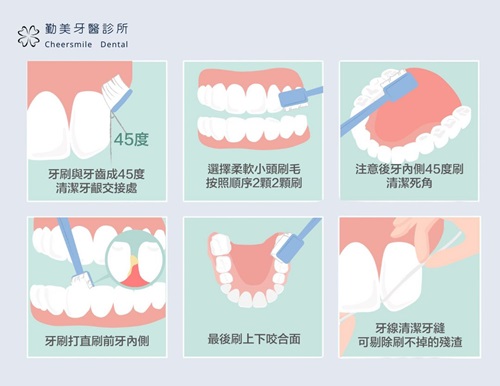Does Dementia Start with Your Teeth? Unveiling the Hidden Truth About Alzheimer’s Disease
"How is that possible? Could poor oral health really impact the brain?"
Did you know? Recent medical studies have revealed a surprising connection between oral health and Alzheimer’s disease!

🔍 Periodontal Disease and Dementia: The Hidden Health Crisis
Periodontal disease is a chronic condition caused by gum inflammation and bacterial infection, leading to symptoms such as bleeding gums, bad breath, gum recession, and even loose or lost teeth. However, what many people don’t realize is that these seemingly minor oral health issues can have a profound impact on brain health.
🦠 How Does Periodontal Disease Affect the Brain?
📌 1. Periodontal Bacteria Can Invade the Brain, Increasing Dementia Risk
Research has found that Porphyromonas gingivalis (P. gingivalis)—a key bacteria in periodontal disease—can enter the bloodstream and reach the brain, triggering neuroinflammation.
These bacteria stimulate the production of β-amyloid (Aβ), which contributes to the formation of plaques commonly found in the brains of Alzheimer’s patients, accelerating neuronal death and cognitive decline.
📌 2. Chronic Inflammation from Periodontal Disease Impairs Neurological Health
Periodontal disease isn’t just an oral issue—it can lead to systemic chronic inflammation.
Persistent inflammation activates microglia (the brain’s immune cells) excessively, causing them to attack healthy neurons. This process can speed up the progression of Alzheimer’s disease and other neurodegenerative conditions.
📌 3. Tooth Loss Negatively Impacts Memory and Brain Function
Studies show that elderly individuals who have lost more than 16 teeth experience faster declines in memory and cognitive function compared to those with a full set of teeth.
Tooth loss not only reduces chewing efficiency but also decreases blood flow and neural stimulation in the brain, which may accelerate cognitive deterioration over time.
📌 4. The Link Between Oral Health and Gut Microbiota
Periodontal bacteria can disrupt gut microbiota, which is closely connected to the brain through the gut-brain axis.
An imbalance in gut microbiota can lead to increased neuroinflammation, further elevating the risk of Alzheimer’s disease!
By maintaining good oral health, you’re not only protecting your teeth but also safeguarding your brain from cognitive decline.
🦷 How Can Oral Care Help Reduce the Risk of Alzheimer’s Disease?
Now that you understand how periodontal disease affects not just your teeth but also your memory, how can you protect yourself in daily life? Here are simple and practical strategies to help maintain oral health and reduce the risk of Alzheimer's disease:
1️⃣ Brush Properly Every Day and Use Dental Floss
🦷 Recommended Oral Care Routine:
✔ Use fluoride toothpaste – Strengthens enamel and protects against decay.
✔ Brush at least twice a day (morning and night) using the Bass brushing technique (hold the toothbrush at a 45-degree angle for optimal plaque removal).
✔ Floss daily – Effectively removes bacteria and plaque buildup between teeth, preventing gum disease.
Consistent and proper oral hygiene is the first line of defense against periodontal disease and its potential impact on brain health!
 Image Source: chinmeidental Clinic
Image Source: chinmeidental Clinic
2️⃣ Schedule Regular Dental Cleanings to Prevent Periodontal Disease
🔹 Why Are Dental Cleanings Important?
Plaque buildup can harden into tartar (calculus), which is a major cause of periodontal disease.
By getting professional dental cleanings every six months, you can effectively prevent gum inflammation and reduce the risk of bacterial infections, helping to maintain both oral and brain health.
3️⃣ Maintain a Balanced Diet and Reduce Sugar Intake
🍎 Recommended Foods for Oral Health:
✔ Vitamin C-rich foods (oranges, kiwis) – Support gum health and strengthen connective tissues.
✔ Omega-3 fatty acids (salmon, flaxseeds) – Help reduce inflammation and support immune function.
✔ High-fiber vegetables (carrots, celery) – Stimulate saliva production, which naturally cleanses teeth.
✔ Green tea – Contains catechins, which have antibacterial properties that help prevent plaque buildup.
🚫 Foods to Avoid:
✖ Refined sugars (candies, soda) – Promote bacterial growth, increasing the risk of cavities and periodontal disease.
✖ Highly processed foods – Contain artificial additives that may disrupt oral and gut microbiota balance.
4️⃣ Supplement Key Nutrients for Strong Teeth and Gums
🦷 Recommended Supplements for Oral Health:
✔ Vitamin D – Enhances calcium absorption, helping to maintain strong teeth.
✔ Calcium + Magnesium – Essential for tooth and bone health.
✔ Oral Probiotics – Help balance oral microbiota, reducing the risk of periodontal disease and bad breath.

5️⃣ Avoid Smoking and Alcohol to Protect Your Gums and Brain
🚭 Smokers are three times more likely to develop periodontal disease than non-smokers.
Smoking reduces blood circulation in the gums, weakens the immune system, and accelerates tooth damage and inflammation.
✨ Protect Your Brain—Starting with Your Mouth!
You might not realize it, but your daily oral hygiene routine directly impacts your brain health!
By adopting good oral care habits, you’re not only protecting your teeth and gums but also potentially reducing the risk of Alzheimer’s disease.
Start today—a healthy mouth leads to a healthier brain! 🧠🦷
📢 A Quick Business Spotlight! 📢
If you're looking for natural and effective health supplement formulations, we offer professional R&D and full-service OEM manufacturing to help brands create the most competitive products on the market. Let us assist you in developing high-quality, science-backed supplements that stand out! 🚀🚀
